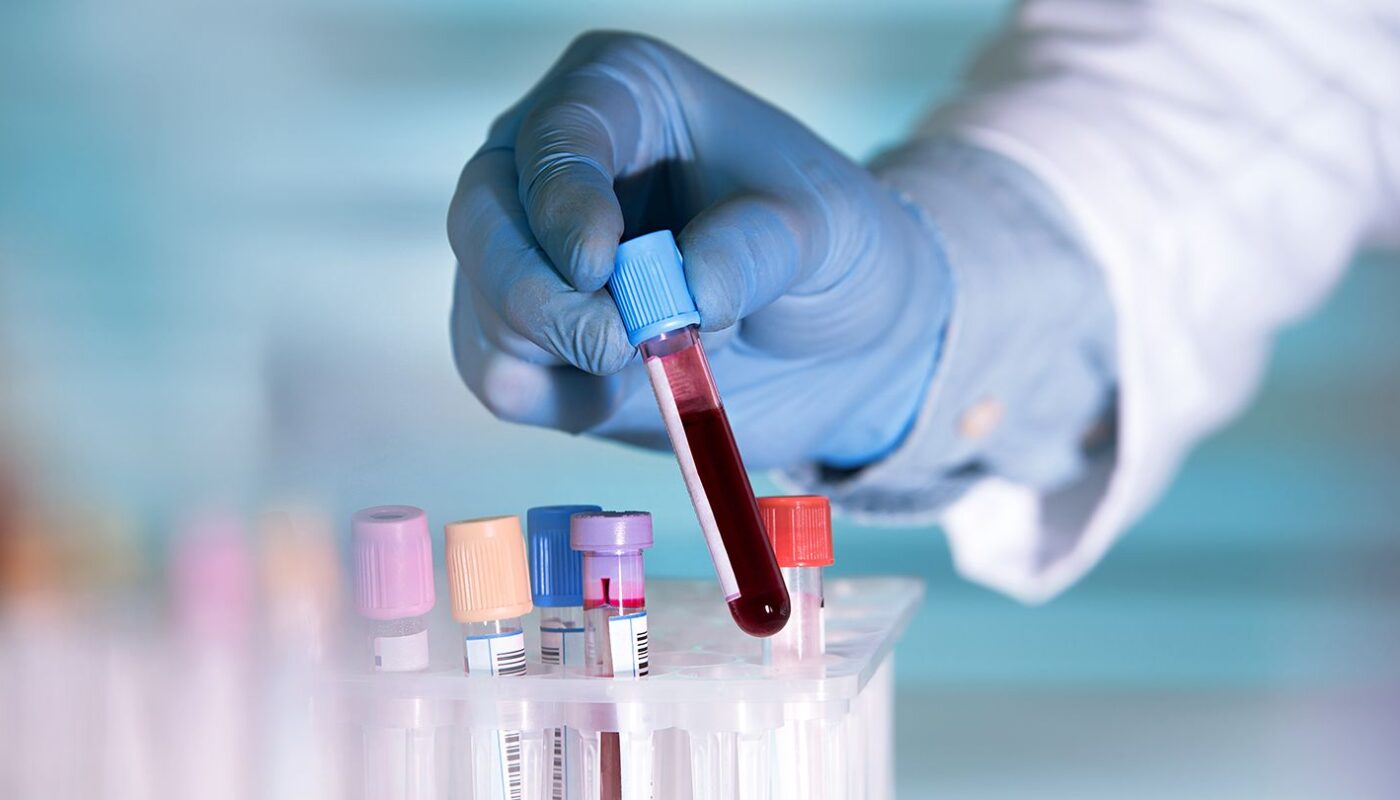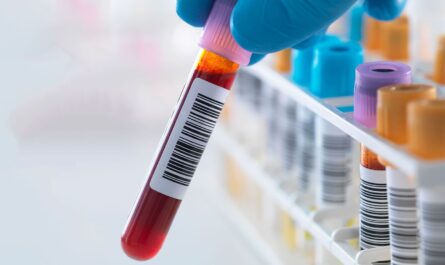Liquid biopsy is a non-invasive blood test that enables detection of cancer by analyzing cell-free DNA (cfDNA) circulating in the bloodstream. When cancer cells die, they release DNA into the bloodstream. A liquid biopsy analyzes this cfDNA along with circulating tumor cells (CTCs) shed by tumors into the blood to detect cancer mutations and other biomarkers. This provides crucial cancer-related information without the need for invasive tumor biopsies.
How Does Liquid Biopsy Work?
A simple blood draw is all that is needed for a Liquid Biopsy. Since the blood circulates throughout the body, ctDNA and CTCs released by tumors can be detected in blood even from cancers that have spread to other organs. The extracted cfDNA is then analyzed through various technologies like polymerase chain reaction (PCR), digital PCR, next-generation sequencing (NGS) to detect genetic mutations and other biomarkers specific to the patient’s cancer. Mutations in genes like EGFR, KRAS, BRAF etc. can help determine the best treatment approach. The presence or absence of ctDNA can also help monitor response to therapies over time in a minimally invasive way.
Applications in Cancer Detection
Liquid biopsies show promise in detecting various cancer types at early stages including lung cancer, breast cancer, colorectal cancer and others. Since ctDNA shedding occurs even from very small primary tumors or metastases, liquid biopsies are more sensitive than conventional imaging tests in some cases. They can serve as supplementary tests to improve early cancer detection when combined with standard screening methods. Various multi-cancer early detection (MCED) blood tests using liquid biopsies are in development that aim to simultaneously screen for multiple cancers from a single blood draw.
Monitoring Treatment Response and Resistance
Monitoring ctDNA levels serially during and after treatment can help track a patient’s response in real-time. A decrease in ctDNA levels indicates that the therapy is working to destroy cancer cells. On the other hand, rising ctDNA despite ongoing treatment suggests disease progression or resistance developing against the administered drugs. This enables timely switching to alternative treatment regimens to prevent cancer from worsening. Liquid biopsies can detect acquired mutations conferring therapy resistance much before clinical relapse becomes apparent through conventional methods.
Role in Cancer Recurrence Surveillance
For cancer survivors who have completed primary treatment, liquid biopsies offer a non-invasive way to monitor for recurrence. Even years after initial diagnosis, reemergence of ctDNA in blood can serve as an early warning signal for cancer regrowth, helping detect relapse at an earlier curable stage. This surveillance strategy spares patients invasive scans or procedures if ctDNA remains absent. Large prospective clinical trials are underway to validate the utility of liquid biopsy-guided recurrence monitoring across different cancer types.
Personalized Cancer Care with Liquid Biopsies
Analysis of tumor molecular profiling through liquid biopsies enhances precision oncology. Detecting genetic mutations helps classify cancers based on biomarkers and select targeted drugs aligned to the molecular profile. Serial testing can reveal new mutations that emerge with disease progression or in response to past therapies received. This dynamic molecular profiling guides effective treatment adaptations and precision healthcare decision making for individual patients over time. Liquid biopsies also offer a minimally invasive alternative for biomarker screening in cases where a tumor tissue biopsy may not be feasible.
Clinical Utility and Future Directions
While liquid biopsy tests are being studied and adopted for different uses in oncology, some challenges remain. ctDNA levels can be very low in early-stage cancers and technical limitations exist regarding detection of rare mutations. Standardization of protocols and analytical validity also need further evaluation in large clinical trials. As technologies improve in detection sensitivity and turnaround time, liquid biopsies are set to transform cancer management by enabling non-invasive real-time monitoring from diagnosis through survivorship. Integration with artificial intelligence could uncover new biomarker signatures for early detection across more cancer types. Wider clinical adoption awaits regulatory approvals but liquid biopsy clearly represents the future of precision oncology.
*Note:
1. Source: Coherent Market Insights, Public sources, Desk research
2. We have leveraged AI tools to mine information and compile it



